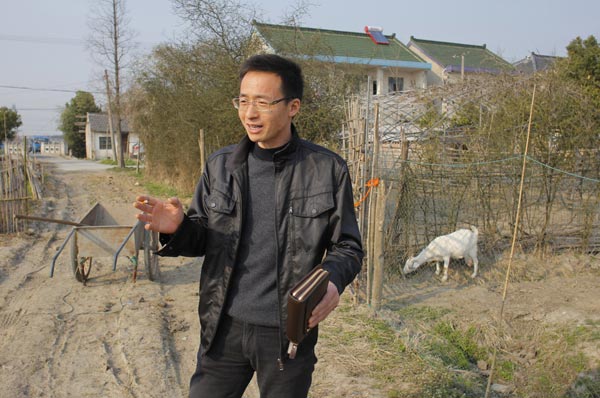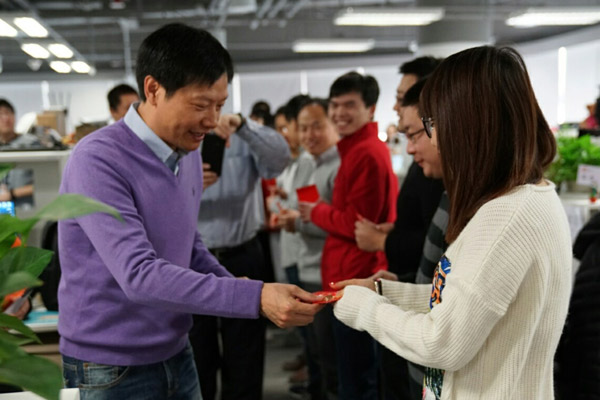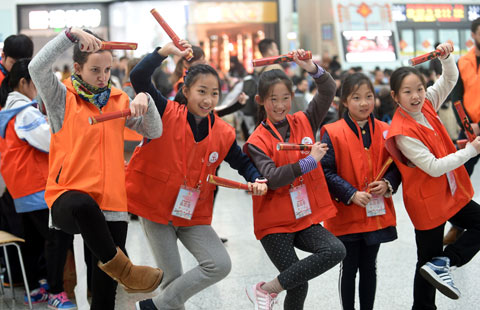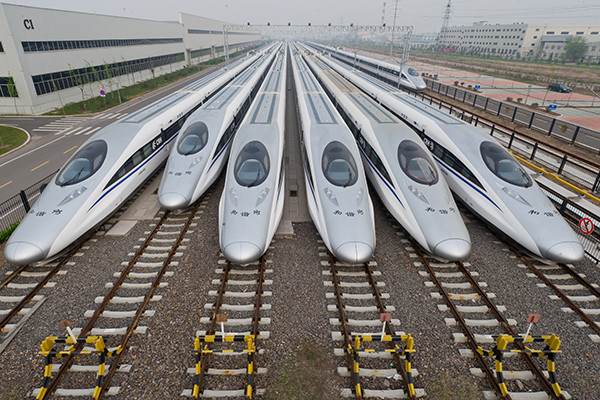Belying the traditional image of a son of the soil
|
 Sun Hongrong talking to visitors at his farm in Tongjian village, in Shanghai's suburban Songjiang district. Sun, 39, calls himself a "new farmer". He is planting rice and raising chickens and ducks on his nine-hectare farm and earned 300,000 yuan ($48,387 ) in 2012. [Photo/China Daily] |
I found it hard to believe Sun Hongrong was a farmer when I met him for the first time.
It wasn't just because he drove a fancy sports utility vehicle, dressed well and was neatly manicured but because of his manner and the way he talked.
I have met many sons of the soil before in the affluent Yangtze River Delta region and in the poor but spiritual Tibet region. Farmers tend to be the warmest and most straightforward people, hard-working but not so good at expressing themselves. They age fast because of the tough lives they lead.
However, this simplistic characterization is not reflected in Sun. The 39-year-old calls himself a "new farmer". He is good at growing rice - his rice sells at 16 yuan ($2.5) a kilogram at the market - but he also loves playing golf and snooker.
"You should change your opinion about farms and farmers. Farming is quite mechanized nowadays and new farmers should not only think about how to grow but also how to manage their farms, making a good business," he said.
I was also impressed by the farmland Sun manages. It is not the season to seed rice yet but chickens and ducks can be raised with the added benefit they eat pests.
The visit to Songjiang district and the family farms there gave me a new perspective on Chinese farming but there are still several concerns that I could not ignore.
First was the sustainability of labor. I saw few young people in the village. Almost all the farmers are older men and women. Young people tend to head to the cities, working in chemical plants, textile factories or restaurants. Although the village officials insist many people want to run a family farm, I could not help worrying whether there would be enough people who know how to grow crops in the future.
Second, and more importantly, was the question of the sustainability of the soil. It is well known that China's arable land is shrinking. Officials say there was a year-on-year net loss of 32,666 hectares at the end of 2011. A more serious problem is the exhaustion of the soil. Farmers have been pursuing high output for several years to get a bigger profit but the over-use of fertilizer and pesticides causes not just food safety issues but can have a negative effect on the fertility of the land. However, almost every one I interviewed in Songjiang spoke about how to better maintain the land, a fact I found heartening.
Third, there is the sustainability of the "family farm". Although there are official guidelines in many places for the family farm scheme that clearly state only families with a rural residence (called a rural hukou) can join the program, industry insiders told me it is not unusual for urban companies to get involved.
"The regulation was made to prevent profit-oriented companies from embezzling the land through building houses or developing agri-tourism, thereby threatening the security of the grain supply. However, unless the law is strictly enforced, such companies can easily find ways around it," said Cheng Cunwang, chairman of Tianyuan Zhengguo Bio-agriculture, an organization that promotes community-supported agriculture in China.
Contact the writer at xieyu@chinadaily.com.cn

















